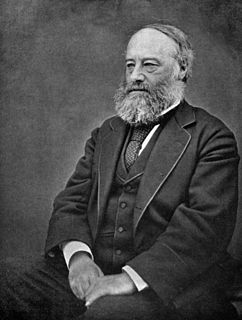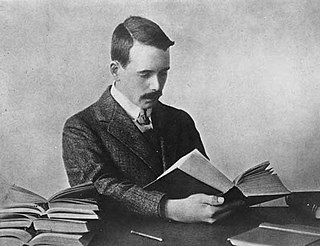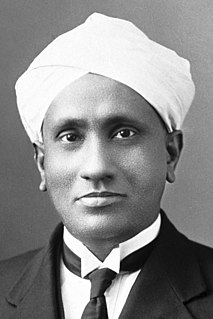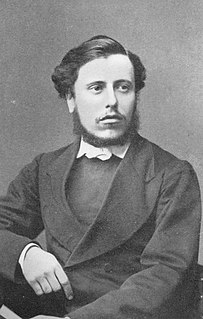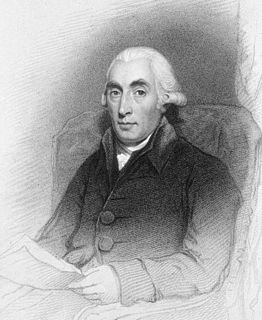A Quote by William John Macquorn Rankine
The hypothesis of molecular vortices is defined to be that which assumes - that each atom of matter consists of a nucleus or central point enveloped by an elastic atmosphere, which is retained in its position by attractive forces, and that the elasticity due to heat arises from the centrifugal force of those atmospheres revolving or oscillating about their nuclei or central points.According to this hypothesis, quantity of heat is the vis viva of the molecular revolutions or oscillations.
Related Quotes
In thermodynamics as well as in other branches of molecular physics , the laws of phenomena have to a certain extent been anticipated, and their investigation facilitated, by the aid of hypotheses as to occult molecular structures and motions with which such phenomena are assumed to be connected. The hypothesis which has answered that purpose in the case of thermodynamics, is called that of "molecular vortices," or otherwise, the "centrifugal theory of elasticity.
The most convincing proof of the conversion of heat into living force [vis viva] has been derived from my experiments with the electro-magnetic engine, a machine composed of magnets and bars of iron set in motion by an electrical battery. I have proved by actual experiment that, in exact proportion to the force with which this machine works, heat is abstracted from the electrical battery. You see, therefore, that living force may be converted into heat, and that heat may be converted into living force, or its equivalent attraction through space.
It is possible to express the laws of thermodynamics in the form of independent principles , deduced by induction from the facts of observation and experiment, without reference to any hypothesis as to the occult molecular operations with which the sensible phenomena may be conceived to be connected; and that course will be followed in the body of the present treatise. But, in giving a brief historical sketch of the progress of thermodynamics, the progress of the hypothesis of thermic molecular motions cannot be wholly separated from that of the purely inductive theory.
Tormented by conflicting feelings, I appealed to reason ; and it is reason which, amid so many dogmatic contradictions, now forces the hypothesis upon me. A priori dogmatism, applying itself to God, has proved fruitless: who knows whither the hypothesis, in its turn, will lead us? I will explain therefore how, studying in the silence of my heart, and far from every human consideration, the mystery of social revolutions, God, the great unknown, has become for me an hypothesis, I mean a necessary dialectical tool.
The physiological combustion theory takes as its starting point the fundamental principle that the amount of heat that arises from the combustion of a given substance is an invariable quantity-i.e., one independent of the circumstances accompanying the combustion-from which it is more specifically concluded that the chemical effect of the combustible materials undergoes no quantitative change even as a result of the vital process, or that the living organism, with all its mysteries and marvels, is not capable of generating heat out of nothing.
Newton supposed that all matter attracted other matter inversely according to the square of the distance; and the hypothesis was found to account for the whole movements of the heavenly bodies; which all became verifications of what Newton supposed to be the law of the solar system. Adopt the hypothesis that Jesus was what He is represented, and the whole of the books and the history becomes a verification.
This, it may be said, is no more than a hypothesis, but it satisfies the conditions of a legitimate hypothesis, by postulating the operation of no unknown or uncertain cause, but only of that force of precedent which in all times has been so strong to keep alive religious forms of which the original meaning is lost.
Heat may be considered, either in respect of its quantity, or of its intensity. Thus two lbs. of water, equally heated, must contain double the quantity that one of them does, though the thermometer applied to them separately, or together, stands at precisely the same point, because it requires double the time to heat two lbs. as it does to heat one.
Molecular evolution is not based on scientific authority. . . . There are assertions that such evolution occurred, but absolutely none are supported by pertinent experiments or calculations. Since no one knows molecular evolution by direct experience, and since there is no authority on which to base claims of knowledge, it can truly be said that . . . the assertion of Darwinian molecular evolution is merely bluster.
What I have related is sufficient for establishing the main principle, namely, that the heat which disappears in the conversion of water into vapour, is not lost, but is retained in vapour, and indicated by its expansive form, although it does not affect the thermometer. This heat emerges again from this vapour when it becomes water, and recovers its former quality of affecting the thermometer; in short, it appears again as the cause of heat and expansion.
[Coining phrase "null hypothesis"] In relation to any experiment we may speak of this hypothesis as the "null hypothesis," and it should be noted that the null hypothesis is never proved or established, but is possibly disproved, in the course of experimentation. Every experiment may be said to exist only in order to give the facts a chance of disproving the null hypothesis.

